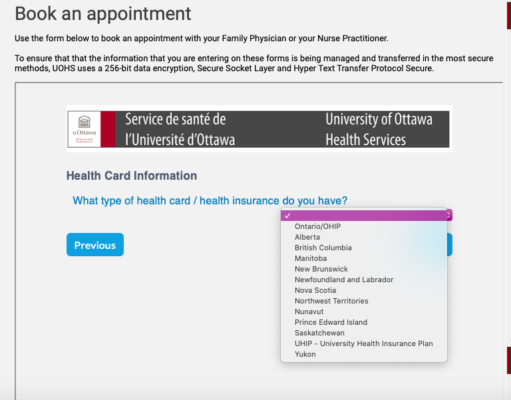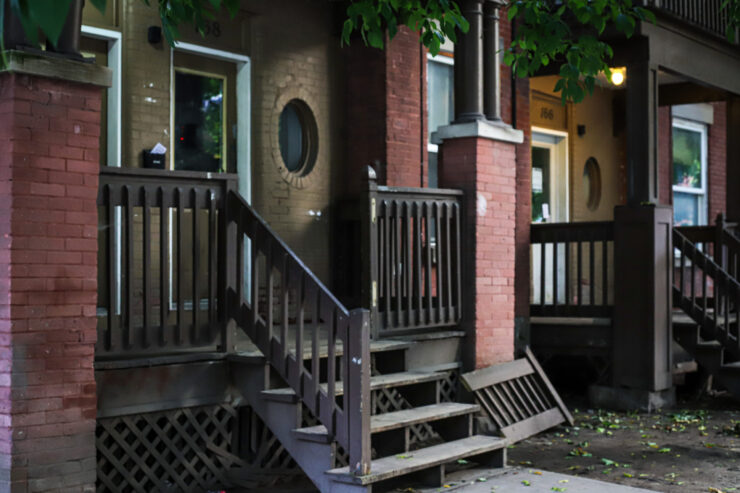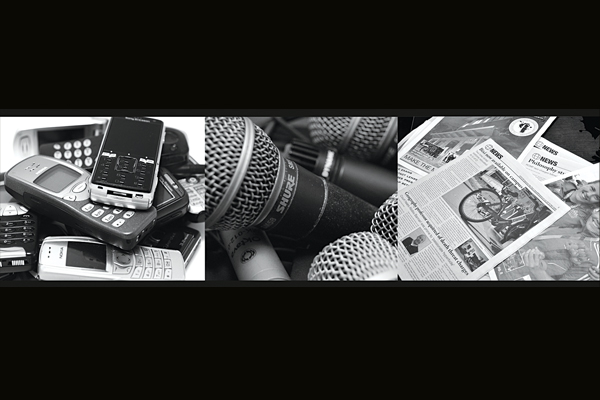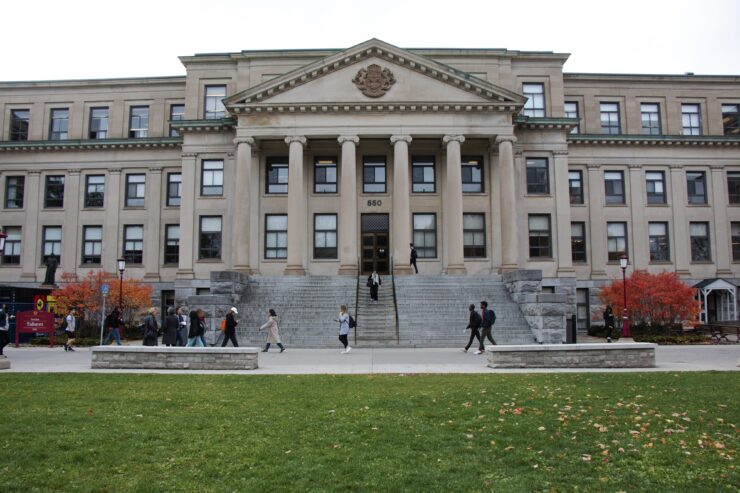Clients of the University of Ottawa Health Services say the phone lines have been down for weeks, unable to leave voicemails.
Overwhelming demand has caused the University of Ottawa Health Services’ (UOHS) phone line to crash. This occurred mere days before classes started at the University of Ottawa and throughout the week.
Quebec resident Myriem Sahouli tweeted her concern and frustration to @uOttawa and @uOCampus on Sept. 8 about UOHS’s phone lines. She had been trying to book an appointment with the UOHS for weeks and all she received was a busy signal.
“[I’m] beyond frustrated and not impressed,” said Sahouli, a U of O Master of Literature and Master of Information Studies alumnus in her tweet to U of O, quoting another individual who has issues with UOHS services
Before publishing her tweet, Sahouli had attempted to leave a voicemail four times throughout the morning and afternoon before she said she finally received normal call services around the end of the day. However, over the next few days, the UOHS phone number remained unreachable, including the inability to leave voicemails.
“I’ve never experienced this at all and I’ve never had an issue getting an appointment or calling the main number. It’s normally seamless,” said Sahouli who’s been using the service since 2013.
The quoted tweet, posted by Carleton-alum Dietwald Claus on August 11, who complained that reception had not yet returned his call and stated confusion alleging a phone number change. However, the number he posted in the tweet is no longer in service and according to 411F reverse number search, is based in Hawkesbury, ON.
The single phone line that has been used for 30 years, 613-564-3950, services all four locations for all its physical and mental health services: 300-100 Marie Curie Pvt, 801 King Edward, 316 Rideau, 2nd Floor, 1 Nicholas (302).
Even though UOHS has its name under the university, Fisher explains it has been managed by a separate entity on behalf of the University since 1990.
“The name of our service understandably leads people to assume that we are a department of the University,” he said. “We liaison regularly with a variety of University faculties, departments, and committees and report to University Administration through the Associate VP of Student Life.”
Isabelle Mailloux-Pulkinghorn, manager of Media Relations for U of O, later said over email that they are aware of the concerns voiced by students about the access to services provided by the UOHS.
“We have reached out to UOHS, which is a separate entity from the University, despite their name. As the clinic indicates on its website, UOHS has been experiencing an unusually high volume of calls for the past weeks. They are diligently working at addressing the issue.”
While there is one number to dial, there are 23 digital link channels as well as more than a dozen analog lines available through the main number, explained Christopher Fisher, the UOHS Director of Operations, who explained some of the reasons for the phone crash.
Fisher cites extremely high volumes from over the summer and the incoming rush of fall calls for the backlog. Additionally, following Ottawa’s Public Health recommendations for all visits to be initially conducted virtually due to COVID-19, their first point of contact is the single phone line.
“Beyond the actual time on the phone associated with the visit, these visits require a lot more coordination by phone than a regular in-person visit, which also ties up the lines,” he said.
“COVID-19 [measures have] imposed a number of pressures on staffing from significantly increased screening, cleaning and disinfecting protocols that pull staff away from the phones to staff absences associated with childcare issues or quarantine as a result of travel or contact with a person suspected of being COVID-19 positive (almost always in a social setting outside of work).”
“Fewer people available for work means fewer people to answer the phones, retrieve and respond to messages, etc.,” he added.
When asked if there has there been discussion around having separate phone numbers for physical and mental health, especially during the phone crashing situation, Fisher said the one phone number is “still the most efficient route and allows us to respond to volumes dynamically in normal circumstances.”
To address the problem, Fisher said the UOHS has taken to steps to fix the problem by ordering more digital channels (currently delayed, but expected to be available within the next week), hired replacement staff for increased calls, prioritize phones as a key access point, incorporation of a new records system and creating an option to scheduled non-urgent visits online (aimed to be in place by October).
Added issues for Quebec residents with RAMQ health insurance
An added reason for Sahouli’s concern which she stated in the tweet, is that while the phone lines have not been working, the online booking option also does not give the option to select Quebec for her health card, thus restricting any access to continue with her request.

The UOHS online booking service states that all provinces accept online bookings except Quebec in their health insurance coverage under Quebec’s Health Insurance Board, Régie de l’Assurance Maladie du Québec (RAMQ). For RAMQ, UOHS states the client must call the clinic to schedule such appointments. This leaves students in limbo given the number of backlogged calls.
“It feels like no one is listening,” said Sahouli who reaches out to the services for mental health support. “Especially when you are in an extreme state of feeling overwhelmed.
Over the years, she has used UOHS and admittedly has found great doctors and counselors through them.
“My heart breaks for people who can’t get help,” said Sahouli, reflecting on the continual barriers including how long it takes to access mental health support and for mental health literacy to be more accessible and normalized.
RAMQ is not part of the nationwide reciprocal billing system that all other provincial health plans participate in and therefore there are fees associated with services to RAMQ patients, Fisher explains.
“They [Quebec residents] can come into any of our clinic locations and make an appointment in person,” Fisher said.“Normally, we collect these fees in the clinic when the patient presents for the appointment. In a time of virtual visits, the patient often does not come into the clinic at all so, as a result, these fees need to be collected at the time of booking the appointment,” he said.
“Our system does not allow us to take online payments so this needs to be done over the phone at the moment.”
Individuals can reach out with questions and concerns specific to UOHS through a feedback form on their website or in person at any of the four clinic locations.





